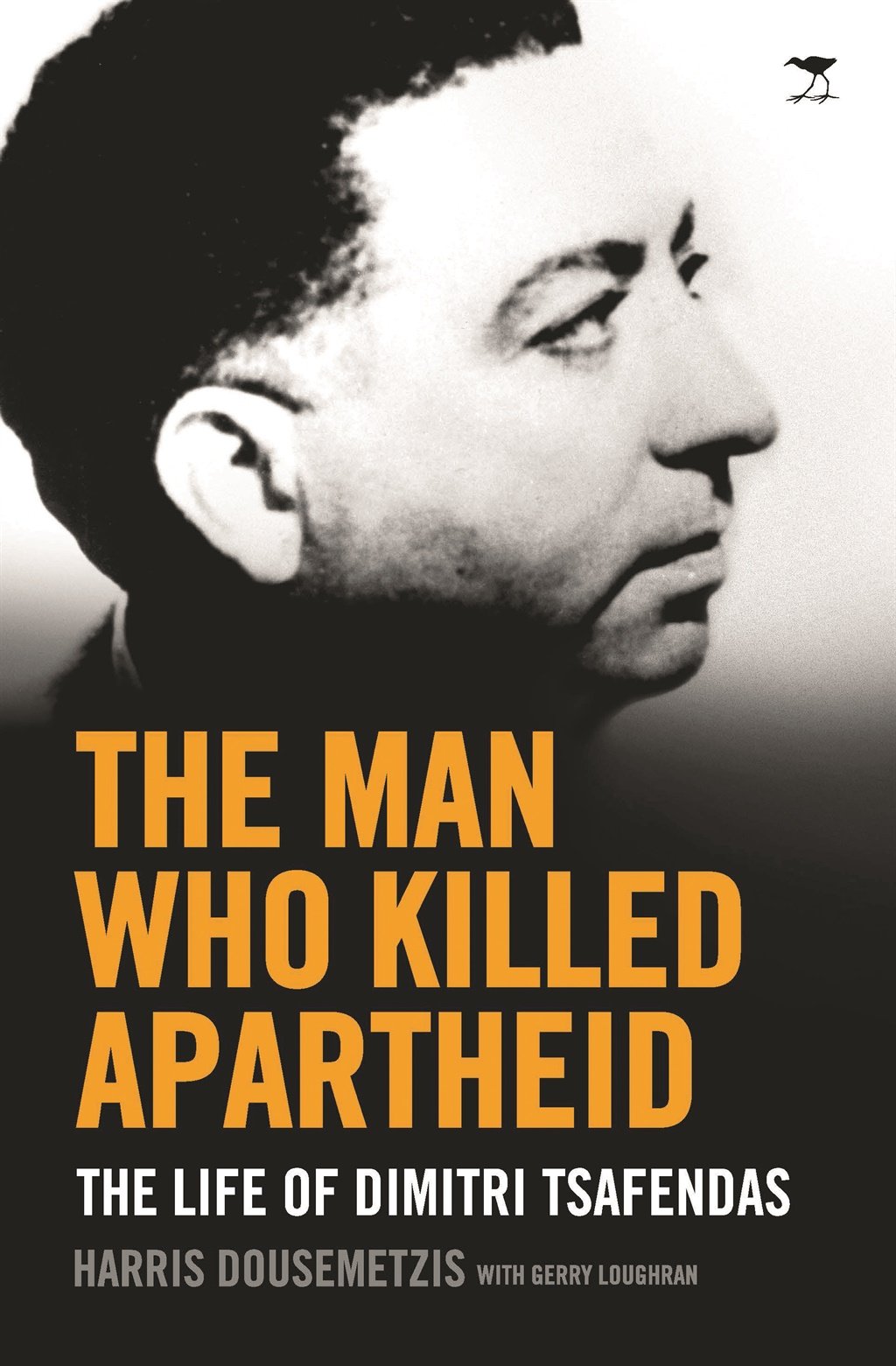
A new book about the life of Dimitri Tsafendas, the man who murdered prime minister Hendrik Verwoerd on September 6, 1966, calls for the historic record to be changed to reflect that Tsafendas was a sane man who committed a political assassination.
The book was written in addition to a 900 000-word report already submitted to Justice Minister Michael Masutha, with a request to have the record altered. Both the book and report were written with the support of renowned professor of international law John Dugard, human rights lawyer George Bizos and former Constitutional Court Justice Zac Yacoob, among others.
Tsafendas, a Portugese national of Greek descent, was found not guilty of murder by reason of insanity after he was diagnosed with schizophrenia and, according to the police at the time, said he had a tapeworm inside him. He spent the rest of his life in various prisons and psychiatric facilities.
Harris Dousemetzis, author of The Man Who Killed Apartheid: The Life of Dimitri Tsafendas, claims he has a mountain of evidence to prove that Tsafendas was, in fact, not insane.
Dousemetzis, a tutor at the School of Government and International Affairs at Durham University, England, spent nearly 10 years researching the life of Tsafendas after meeting five people who knew him independently of one another. All attested to his character and good nature. Three of them were priests who knew the man well.
"I was impressed by the way people were talking about him and found it extraordinary that priests would speak so highly of someone who murdered a man. Of course, they didn't condone the murder but everyone said the same things – they spoke of him with admiration and held him in high esteem. I found it highly unlikely," Dousemetzis said in an interview on Monday.
'Suited government to say Verwoerd's killer was insane'
During the course of his research, he found that the Portuguese secret security police at the time held a massive file on Tsafendas and that, on the day following Verwoerd's assassination, it had instructed its counterpart in Mozambique to conceal from the South African authorities any "information indicating Tsafendas as a partisan for the independence" of Mozambique. Their colleagues in Lourenço Marques subsequently lied to the South African police when they received a request for information.
This was, to Dousemetzis' mind, indisputable evidence supporting the testimonies of those he had interviewed that Tsafendas was not a madman committing a random act of violence, but, in fact, a political animal.
Further scrutiny of the archives showed that the medical practitioners who examined Tsafendas in the days following the murder had found that he was "co-operative" and "composed", showing no signs of mental illness. It was only after several weeks in detention, during which Tsafendas was exposed to among other things psychological torture, that the insanity plea was conjured up.
"At the time it suited the government to say that Verwoerd's killer was insane. It would've been unwise to reveal the extent of Tsafendas' political activism and communist ties, given how deep he had infiltrated Parliament. It would also have been embarrassing for those in charge of the investigation to admit that a communist was in service of the government," says Dousemetzis.
Execution of a tyrant
"Why Tsafendas went along with the story, I don't know, but I think he could not take the torture in custody and wanted to avoid an undignified death. He was afraid the authorities would kill him and make it look like suicide."
The book paints a fascinating picture of Tsafendas as a thoughtful man who refused to think of the killing of Verwoerd as an assassination, but an execution of a tyrant.
Six years before the murder, at a meeting with members of the British anti-apartheid movement in London, he had publicly declared that he was willing to do "anything that would get the South African regime out of power".
When he realised that, as a messenger in Parliament, he had relatively easy access to Verwoerd, he started to plan the murder. A previous attempt failed when Verwoerd failed to show up to an event to which Tsafendas had smuggled a gun to do the deed.
Dousemetzis writes that Tsafendas was "so disgusted" with apartheid that he did not care what would happen to him afterwards.




 Publications
Publications
 Partners
Partners











